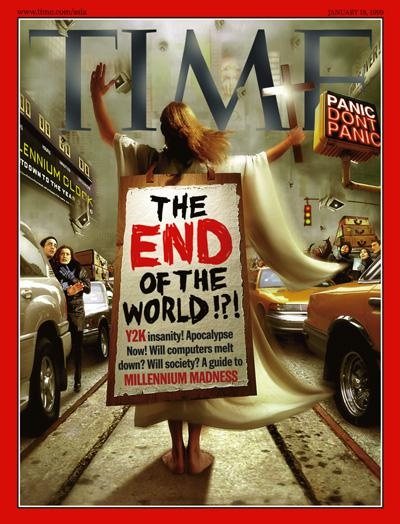The year 2000 – or rather the transition from 1999 to 2000 – was crucial for many people for many reasons. While some promised a huge change for the better from this change of calendar, others believed that the transition to the new calendar would be the cause of considerable problems. There were even those who predicted the gradual collapse of the entire civilization. The reason for these concerns was the change in the data format in computers and other devices, and the whole issue eventually entered the public consciousness as the Y2K phenomenon.
It could be interest you

Concerns about the so-called 2000 problem were based, among other things, on the fact that on some older devices the year was written with only two digits to save memory, and problems could occur when switching from 1999 (respectively 99) to 2000 (00) differentiating the year 2000 from 1900. However, ordinary citizens were more likely to fear the collapse of important systems - most government and other organizations had invested in the necessary measures before the transition to the new calendar to help prevent potential problems. Problems potentially threatened in banks due to the wrong calculation of interest and other parameters, certain problems could also arise in transport systems, factories, power plants and in a number of other important places. In most places, it was possible to introduce a number of measures even before the problem even began to be discussed publicly - nand an estimated $2 billion was spent on hardware and software upgrades and other Y300K-related measures. In addition, with newer computers, the year was already written in a four-digit number, so there was no risk of problems.
Along with the approaching end of the old year, the Y2K phenomenon enjoyed more and more media attention. While the professional media tried to reassure the public and spread awareness, the more tabloid press and television stations were competing to come up with a more catastrophic scenario. "The Y2K crisis didn't happen mainly because people started preparing for it ten years in advance. And the general public was too busy buying supplies and stuff to have no idea that programmers were already doing their jobs," said Paul Saffo, a professor at Stanford University.
It could be interest you

In the end, the problems with the transition to the new year were more likely to be reflected in erroneously printed data in documents, invoices, warranty cards and on the packaging of various goods, where it was indeed possible to meet the year 1900 in some cases. Partial problems were noted in the Japanese Ishikawa power plant, thanks however, there was no danger to the public with the back-up equipment. According to the National Geographic server, countries that prepared for the arrival of the new year with a little less consistency than, for example, Great Britain or the United States, did not experience significant problems, such as Russia, Italy or South Korea.
Sources: British, Time, National Geographic


